-
 Bitcoin
Bitcoin $118400
0.39% -
 Ethereum
Ethereum $3814
2.17% -
 XRP
XRP $3.547
1.34% -
 Tether USDt
Tether USDt $1.000
0.00% -
 BNB
BNB $769.5
2.95% -
 Solana
Solana $191.7
6.36% -
 USDC
USDC $0.9999
0.01% -
 Dogecoin
Dogecoin $0.2722
7.75% -
 Cardano
Cardano $0.8995
5.59% -
 TRON
TRON $0.3158
-0.78% -
 Hyperliquid
Hyperliquid $47.37
4.46% -
 Stellar
Stellar $0.4848
3.54% -
 Sui
Sui $4.031
1.72% -
 Chainlink
Chainlink $20.11
3.94% -
 Hedera
Hedera $0.2832
3.16% -
 Avalanche
Avalanche $26.20
4.27% -
 Bitcoin Cash
Bitcoin Cash $530.5
0.67% -
 Shiba Inu
Shiba Inu $0.00001568
3.59% -
 Litecoin
Litecoin $118.4
1.42% -
 UNUS SED LEO
UNUS SED LEO $8.976
-0.23% -
 Toncoin
Toncoin $3.349
2.54% -
 Polkadot
Polkadot $4.590
2.54% -
 Uniswap
Uniswap $10.56
-0.59% -
 Ethena USDe
Ethena USDe $1.001
0.00% -
 Monero
Monero $327.7
0.39% -
 Pepe
Pepe $0.00001422
2.62% -
 Bitget Token
Bitget Token $4.973
-1.22% -
 Dai
Dai $1.000
0.02% -
 Aave
Aave $331.9
1.59% -
 Bittensor
Bittensor $429.6
-0.56%
What is shilling in crypto
Shilling in crypto involves promoting projects with hidden incentives, often through hype and misinformation to manipulate prices and attract unsuspecting investors.
Jul 11, 2025 at 07:49 am
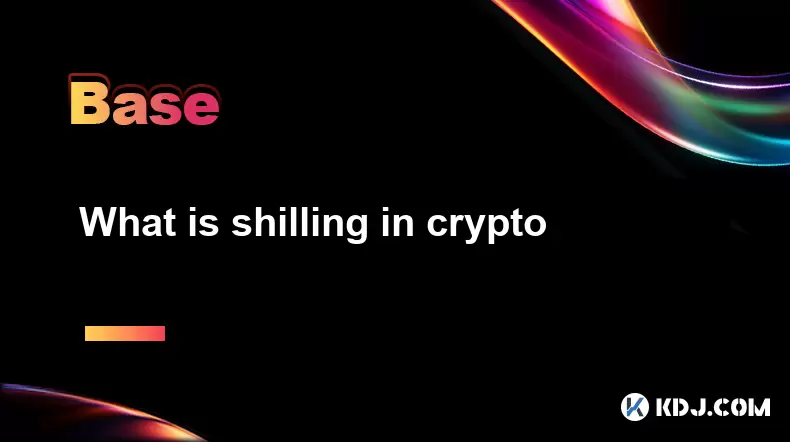
Understanding the Concept of Shilling in Crypto
In the cryptocurrency space, shilling refers to the act of aggressively promoting a particular cryptocurrency or project with the intention of manipulating its price or increasing its adoption. This practice is often carried out by individuals or groups who have a vested interest in the asset being promoted. Shilling can occur on social media platforms, forums, and even in private messaging groups, where influencers, developers, or investors encourage others to buy into a token without disclosing their own financial stake.
This behavior is considered unethical and sometimes illegal because it misleads investors and creates artificial hype around a project that may not be fundamentally sound. Shilling is particularly prevalent in the altcoin market, where new projects are constantly emerging, and many lack transparency or real-world utility.
How Shilling Works in Practice
Shilling typically follows a pattern that involves strategic promotion across multiple channels. Individuals or teams behind a crypto project may hire promoters to spread positive messages about the coin. These messages often include exaggerated claims such as "10x potential," "revolutionary technology," or "exclusive insider knowledge."
- Promoters post in online communities like Reddit, Telegram, or Discord.
- Influencers share content on Twitter, YouTube, or TikTok praising the project.
- Paid advertisements appear on various platforms with bold promises.
- Fake news articles or interviews are created to give the illusion of legitimacy.
These tactics aim to generate FOMO (fear of missing out) among retail investors, encouraging them to invest before conducting proper due diligence.
Differentiating Between Genuine Promotion and Shilling
Not all promotion in the crypto space qualifies as shilling. Many legitimate projects engage in marketing to raise awareness and attract users. The key difference lies in transparency and intent. If someone openly discloses their affiliation with a project and provides honest assessments, their actions may not be considered shilling.
However, when individuals fail to disclose their affiliations, make unrealistic projections, or suppress criticism of the project, this crosses into unethical territory. Investors should always look for signs of bias, excessive hype, and lack of verifiable information when evaluating promotional content.
The Risks Associated With Falling for Shilling Tactics
Investors who fall victim to shilling can suffer significant financial losses. Many hyped-up projects collapse shortly after their initial surge in price, leaving latecomers holding worthless tokens. In some cases, these projects are outright scams designed to pump and dump.
- Pump-and-dump schemes involve coordinated buying to inflate the price followed by mass selling.
- Rug pulls occur when developers abandon the project and take the funds raised.
- Fake partnerships or endorsements are used to create false credibility.
Those who follow shilled promotions without doing their research often end up losing their entire investment. It's crucial to verify information from multiple sources and assess whether the project has real use cases, a transparent team, and active development.
Identifying Red Flags of Shilling Behavior
There are several warning signs that indicate someone might be engaging in shilling:
- Excessive praise without substantive analysis
- Claims of guaranteed returns or mooning prices
- Lack of technical details about the project
- Anonymous or unverifiable team members
- Pressure to invest quickly without time for research
Watch out for repeated posts across different platforms pushing the same narrative. Automated bots or sockpuppet accounts may also be used to amplify the message and create an illusion of popularity.
Protecting Yourself From Shilling in the Crypto Space
To avoid falling prey to shilling, investors should adopt a cautious approach and perform thorough due diligence before investing in any cryptocurrency. Here are some steps to consider:
- Research the project’s whitepaper, roadmap, and tokenomics.
- Check the team’s background and previous experience.
- Look for audits, open-source code repositories, and community feedback.
- Avoid making decisions based solely on social media hype.
- Be skeptical of influencers who promote unknown coins without explanation.
Always ask yourself whether the promoter has anything to gain from your investment. Independent verification is essential in distinguishing genuine opportunities from manipulative tactics.
Frequently Asked Questions About Shilling in Crypto
What legal consequences can arise from shilling cryptocurrencies?
While laws vary by jurisdiction, shilling can lead to regulatory scrutiny, especially if it involves fraud, market manipulation, or unregistered securities offerings. In some cases, individuals have faced fines or lawsuits for misleading investors.
Can shilling happen on decentralized platforms?
Yes, shilling occurs on decentralized platforms just as frequently as on centralized ones. Forums like Reddit, decentralized chat apps, and blockchain-based social networks can all be used to push dubious projects.
Is it possible for a well-known figure to shill without knowing it?
Yes, some influencers or public figures may unknowingly promote low-quality projects if they are paid without full disclosure of the risks involved. That said, they still bear responsibility for endorsing products without due diligence.
How do crypto communities combat shilling?
Many communities implement moderation policies, ban spammy accounts, and encourage critical discussion to counteract shilling. Some platforms also require disclaimers for promotional content or restrict certain types of advertising.
Disclaimer:info@kdj.com
The information provided is not trading advice. kdj.com does not assume any responsibility for any investments made based on the information provided in this article. Cryptocurrencies are highly volatile and it is highly recommended that you invest with caution after thorough research!
If you believe that the content used on this website infringes your copyright, please contact us immediately (info@kdj.com) and we will delete it promptly.
- Saylor, Trump, and Bitcoin: A New York Minute on Crypto's Power Trio
- 2025-07-22 00:50:12
- Strategy, Bitcoin, and $122,000: A New York Minute on Crypto's Latest Moves
- 2025-07-22 00:50:12
- Dogecoin Price Prediction: Will the Pump Continue?
- 2025-07-22 01:50:12
- AVAX Price, Mining Rewards, and PI Price: What's the Buzz?
- 2025-07-22 01:50:12
- AAVE, ONDO, XRP: Charting the Course for Altcoin Breakouts
- 2025-07-22 01:10:12
- Dogwifhat (WIF) Price Outlook: Will the Meme Coin Momentum Continue?
- 2025-07-22 01:15:12
Related knowledge
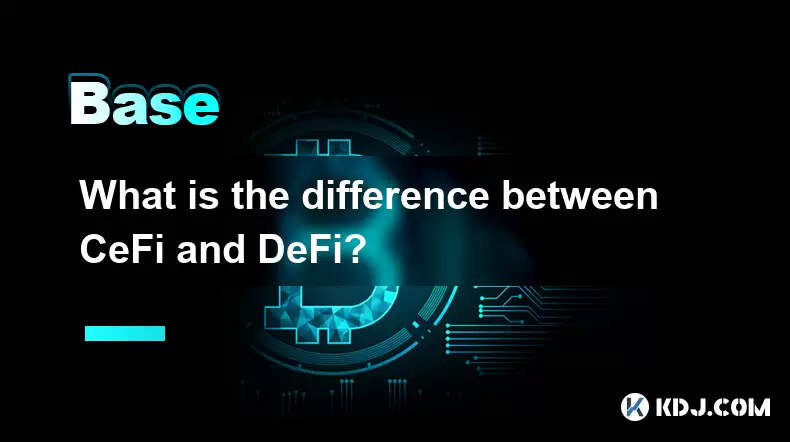
What is the difference between CeFi and DeFi?
Jul 22,2025 at 12:28am
Understanding CeFi and DeFiIn the world of cryptocurrency, CeFi (Centralized Finance) and DeFi (Decentralized Finance) represent two distinct financia...
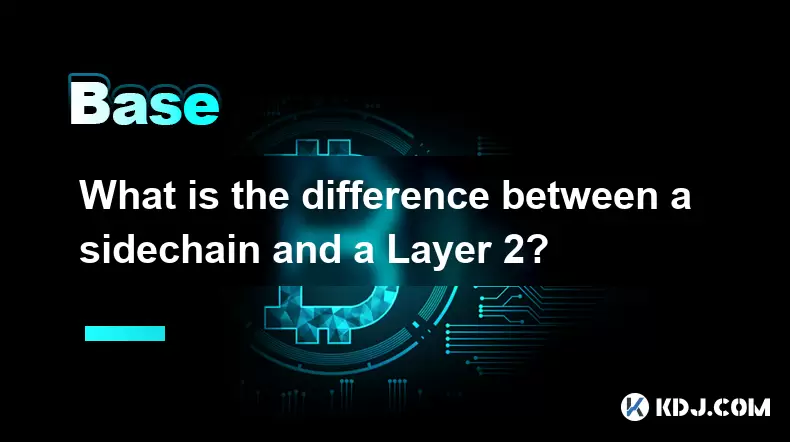
What is the difference between a sidechain and a Layer 2?
Jul 20,2025 at 11:35pm
Understanding the Concept of SidechainsA sidechain is a separate blockchain that runs parallel to the main blockchain, typically the mainnet of a cryp...

What is the Inter-Blockchain Communication Protocol (IBC)?
Jul 19,2025 at 10:43am
Understanding the Inter-Blockchain Communication Protocol (IBC)The Inter-Blockchain Communication Protocol (IBC) is a cross-chain communication protoc...

How does sharding improve scalability?
Jul 20,2025 at 01:21am
Understanding Sharding in BlockchainSharding is a database partitioning technique that is increasingly being adopted in blockchain technology to enhan...
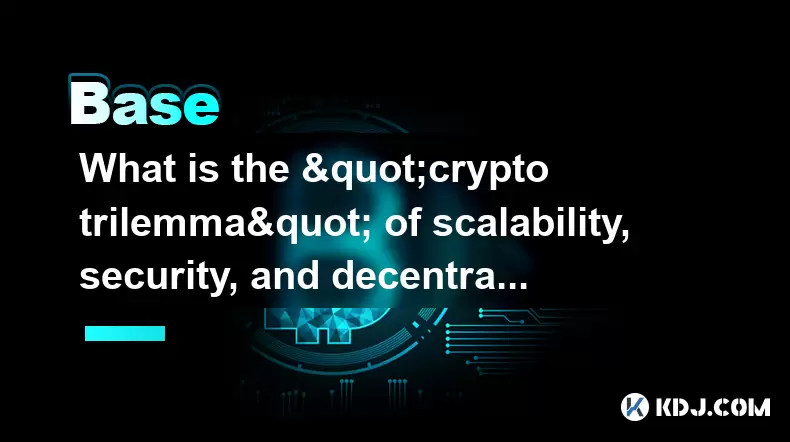
What is the "crypto trilemma" of scalability, security, and decentralization?
Jul 19,2025 at 06:28pm
Understanding the Concept of the Crypto TrilemmaThe crypto trilemma refers to the challenge of simultaneously achieving scalability, security, and dec...
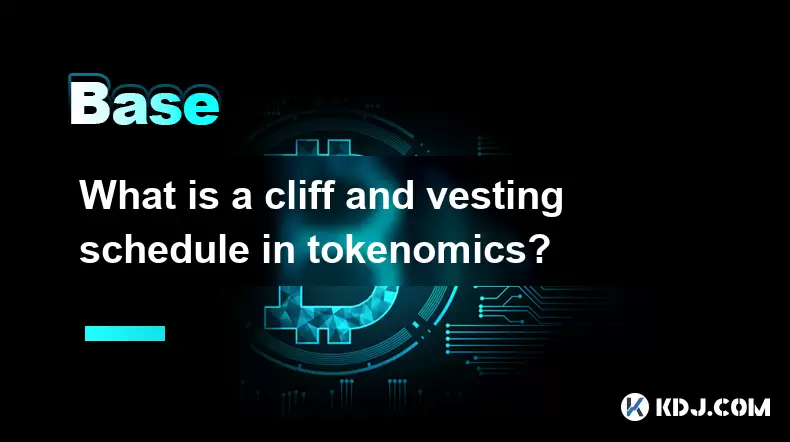
What is a cliff and vesting schedule in tokenomics?
Jul 20,2025 at 10:28am
What Does a Cliff Mean in Tokenomics?In tokenomics, a cliff refers to a specific period during which token holders are not allowed to access or transf...

What is the difference between CeFi and DeFi?
Jul 22,2025 at 12:28am
Understanding CeFi and DeFiIn the world of cryptocurrency, CeFi (Centralized Finance) and DeFi (Decentralized Finance) represent two distinct financia...

What is the difference between a sidechain and a Layer 2?
Jul 20,2025 at 11:35pm
Understanding the Concept of SidechainsA sidechain is a separate blockchain that runs parallel to the main blockchain, typically the mainnet of a cryp...

What is the Inter-Blockchain Communication Protocol (IBC)?
Jul 19,2025 at 10:43am
Understanding the Inter-Blockchain Communication Protocol (IBC)The Inter-Blockchain Communication Protocol (IBC) is a cross-chain communication protoc...

How does sharding improve scalability?
Jul 20,2025 at 01:21am
Understanding Sharding in BlockchainSharding is a database partitioning technique that is increasingly being adopted in blockchain technology to enhan...

What is the "crypto trilemma" of scalability, security, and decentralization?
Jul 19,2025 at 06:28pm
Understanding the Concept of the Crypto TrilemmaThe crypto trilemma refers to the challenge of simultaneously achieving scalability, security, and dec...

What is a cliff and vesting schedule in tokenomics?
Jul 20,2025 at 10:28am
What Does a Cliff Mean in Tokenomics?In tokenomics, a cliff refers to a specific period during which token holders are not allowed to access or transf...
See all articles

























































































